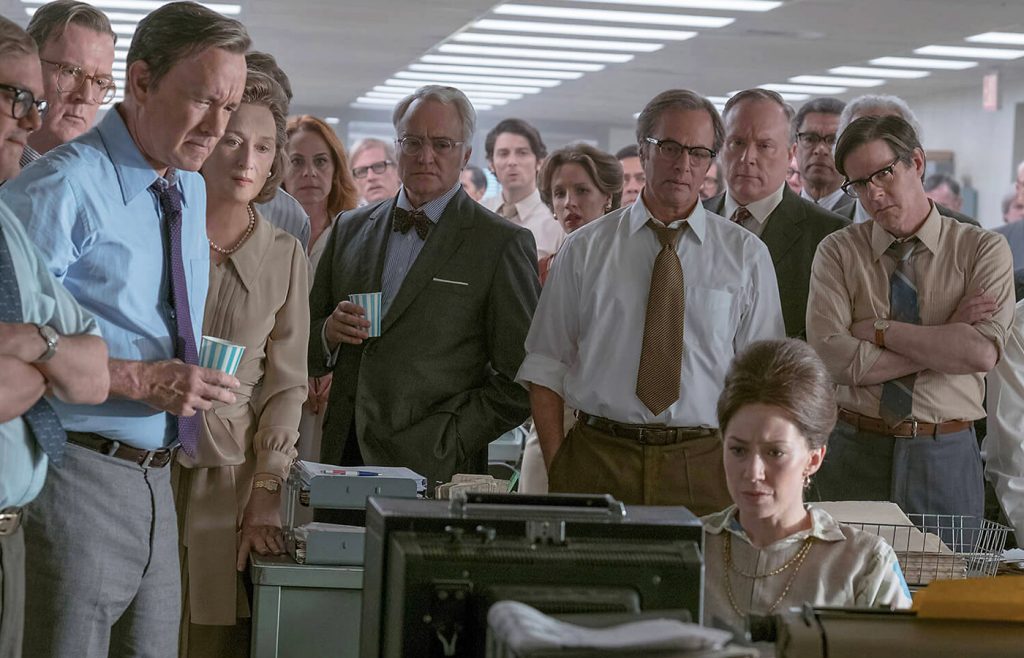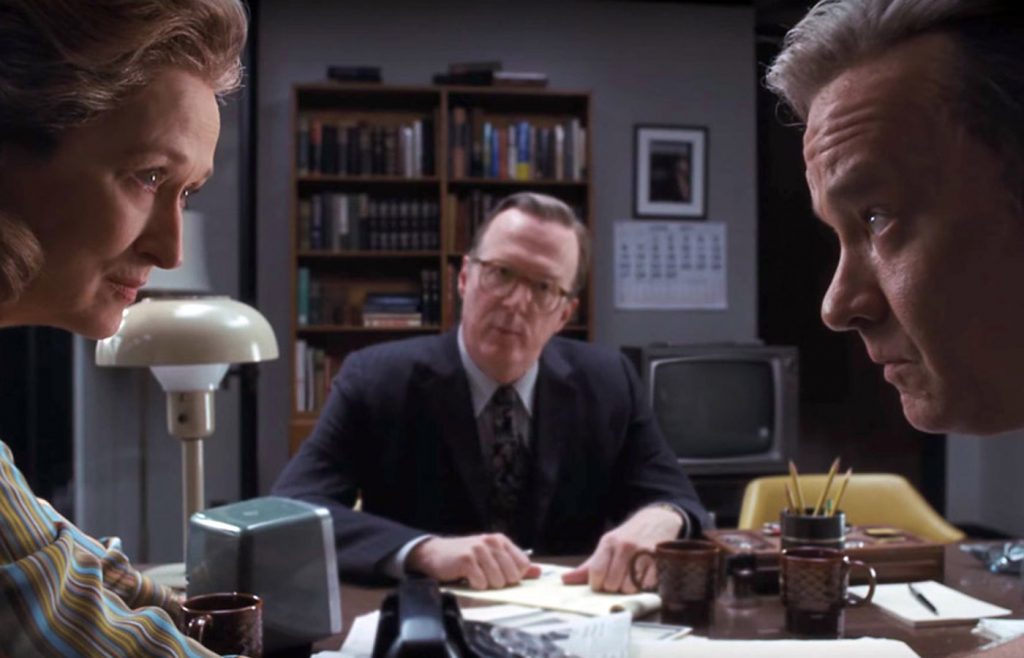
In the spirit of Spotlight and All the President’s Men, The Post revisits events surrounding the Pentagon Papers and the monumental decision by editor Ben Bradlee (Tom Hanks) and Washington Post publisher Katherine Graham (Meryl Streep) to publish the top-secret report.
At the center of it all is Daniel Ellsberg (Matthew Rhys)—still an activist today at age 86. In 1971, he leaked the Pentagon Papers to the New York Times, though the film gives him little coverage. Working for the Pentagon under Secretary of Defense Robert McNamara (Bruce Greenwood) and for the RAND Corporation, Ellsberg helped create the 7,000-page report titled “United States–Vietnam Relations, 1945–1967: A Study Prepared by the Department of Defense.” These documents confirmed that Vietnam was a war the U.S. could never win, and that our continuous involvement was based 70 percent on saving face. According to the documentary The Most Dangerous Man in America, Ellsberg believed that it wasn’t a question of being on the wrong side, “we were the wrong side.” After the New York Times broke the story, a federal judge ruled against further coverage. Ellsberg went underground, waiting for more newspapers to publish the story. And editor Ben Bagdikian received an anonymous phone call offering secret documents. Enter the Washington Post.

What The Post is guilty of is omission. The film overlooks the heroics of New York Times reporter Neil Sheehan for being the first to reveal the Pentagon Papers (Sheehan was awarded the Public Service Pulitzer Prize). And it ignores Times publisher Arthur Sulzberger, who risked his newspaper to honor the public’s right to know. He’s remembered for saying, “It’s an honor to be called an S.O.B. by Richard Nixon.”
And then there’s accuracy. Yes, Kay Graham knew her place among the world of men, but she was no stranger to the news business. She reported for the San Francisco News, and then as an editor for the Washington Post, owned by her father, Eugene Meyer. She married Philip Graham, a Supreme Court law clerk who took charge of the Post until his death. When Kay took over, she hired Ben Bradlee from Newsweek as editor and she took charge of the business. The once small newspaper went public. And today the Post is owned by Amazon founder Jeff Bezos, who purchased it for $250 million.
As much as I enjoy Tom Hanks, I preferred Jason Robards’s Ben Bradlee in All the President’s Men, which was more of a thriller. The Post, in contrast, is a movie on a mission. Spielberg chooses this historic event to remind us of certain principles, in case we needed reminding in the current political and cultural climate. Behold: 1) The free press is the voice of a democracy. And 2) women have power, which we were sure to note when Kay exits the Supreme Court into a mob of admiring women, seeming oddly out of place, like a manufactured Hollywood moment.
But in conclusion, we respectfully salute the Washington Post for its brave rite of passage, as the mighty little paper that could. B-
